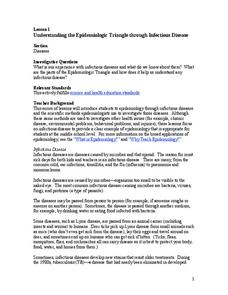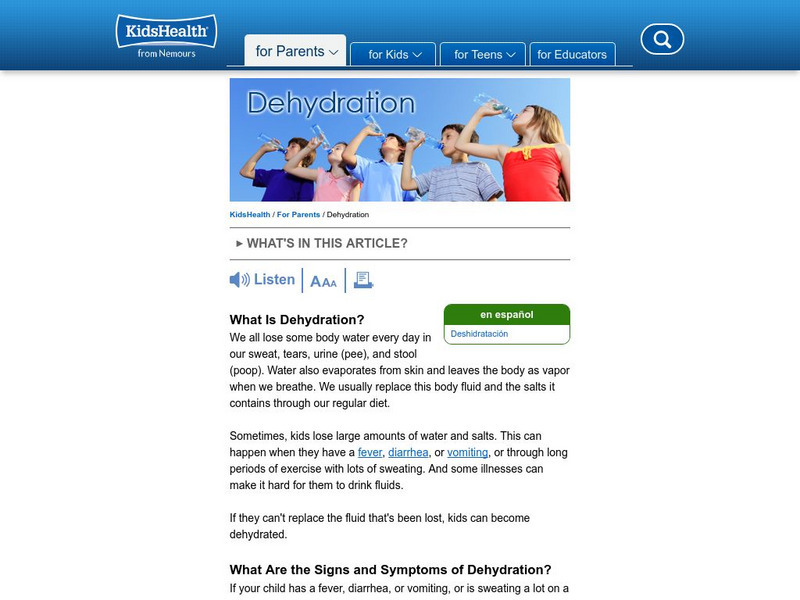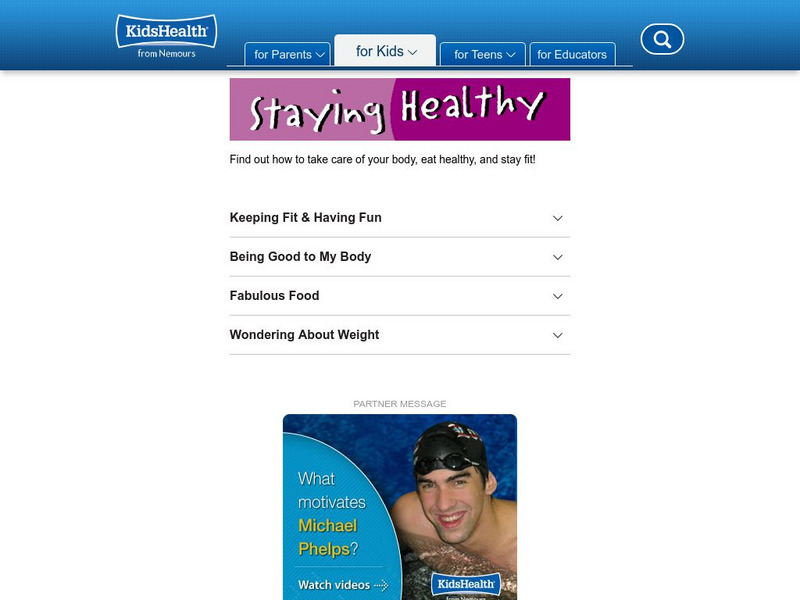US Environmental Protection Agency
Aquifer in a Cup
Young scientists create their very own aquifers in this science lesson on ground water. After learning about how some people get their drinking water from underground wells, young learners use sand, modeling clay, and aquarium rocks to...
Advocates for Human Rights
The Right to a Clean Environment: Water
First, young citizens learn about water consumption by doing some research themselves on their home water usage and sharing their findings with the class. Then, they do some brainstorming and devise a plan to reduce water consumption.
Kenan Fellows
Making Connections with Water Quality
What's in your water? And, why is water quality so important? Enhance your class's level of water appreciation through a lesson that demonstrates the necessity of water quality. Environmental enthusiasts explore the EPA's Clean Water...
Curated OER
What Does Earth Day Mean? - Biology Teaching Thesis
Students possible sources of water pollution, and explain the effects that water pollution can have on the food on the food chain. They Name human and other animal (i.e. fish) illnesses that can be contracted from drinking polluted...
San Francisco Public Utilities Commission
Pesky Plastics: The Problem with Plastic
What can happen to the environment if plastic continues to pollute it? Learners read about the implications of plastic on health, water, and nature in a two-page reading passage. After they finish reading, they work on six comprehension...
Curated OER
Be Kind to Your Teeth
What kinds of food can be bad for your teeth? Kindergartners and first graders explore dental health with an interactive science inquiry. Given a choice of foods such as celery, cake, and milk, kids choose which ones are better for their...
Curated OER
One Kid Can Make A Difference
Learners make a pledge to make three positive choices for 30 days and track their progress. For this positive choices lesson plan, students discuss ways in which they can be healthier, protect the environment, be respectful, and more....
Curated OER
Earth Day Unit Plan: Pollution in the Anacostia River - Biology Teaching Thesis
Sixth graders are able to explain that there are pollutants in the Anacostia River, what these pollutants can cause, and how to prevent further pollution. They examine the impacts that the pollutants of the Anacostia River could have on...
Curated OER
Our Healthy Bodies
Students complete a variety of activities designed to enhance their awareness of their bodies. They examine pictures of themselves, taken at various points in the year and examine and compare their bodies. They enjoy a healthy snack...
Curated OER
Conservation
Fifth graders examine how destructive fishing practices affect the health of coral reefs. They watch a Powerpoint Presentation, conduct an experiment, and in small groups create a Powerpoint Presentation.
Centers for Disease Control and Prevention
Understanding the Epidemiologic Triangle through Infectious Disease
Introduce infectious diseases and the epidemiologic triangle. A helpful resource describes the agent, host, and environment from the three vertices as well as the time factor, which is in the middle. Scholars complete a simple...
Curated OER
Soda to be Absent from Schools
Should schools serve soda to students? Learners read an artlcle that argues against the sale of soda in schools and engage in a class discussion. They then complete a short assessment to check for comprehension and reflect on the...
Curated OER
Understanding the Epidemiologic Triangle through Infectious Disease
Young scholars examine the epidemiologic triangle. In this disease lesson, students discuss infectious disease as they study how they spread and discover their families' experiences with them. Young scholars research Internet sites to...
Curated OER
Kids Health: Why Drinking Water Is the Way to Go
Every person, plant, and animal needs water to survive. Learn why water is so important for our health and how you can keep yourself hydrated and healthy by drinking enough fluids every day.
Curated OER
Kids Health: Woods & Camping Safety for the Whole Family
Be prepared for anything when going on a hiking or camping trip. Know what you need to be aware of in order to stay safe. Find information on insect bites, allergic reactions, proper camping attire, and safe drinking water, and learn...
Curated OER
Kids Health: What's the Big Sweat About Dehydration?
Find out why it is so very important to drink water in order to prevent dehydration. This article also tells you what to do if you do become dehydrated.
Curated OER
Kids Health: Staying Safe While in the Water
In addition to providing tips to help you stay safe when playing in or near a swimming pool, lake, or water park, this website includes statistics about pool-related injuries and drowning.
Curated OER
Kids Health: A Guide to Eating for Sports
Television ads and magazines are littered with new sports drinks and supplements that claim to enhance performance for athletes. Are these claims proven to be true or just cunning marketing schemes? This article delves into the hype and...
Curated OER
Kids Health: Dehydration and Treating Dehydration
KidsHealth: Dehydration and Treating Dehydration
Curated OER
Kids Health: Dehydration
In addition to providing a good definition of "Dehydration," this website explains how dehydration affects the body, how people get dehydrated, and how you can treat and prevent dehydration.
US Environmental Protection Agency
Epa: Where Does Your Water Come From? [Pdf]
Where does your drinking water come from? This resource features a clear and concise explanation for this question. This resource will be beneficial to students and teachers.
Curated OER
Kids Health: Water Safety
Going to a beach or a pool can make for a great time if one is conscious of potential hazards that are associated with these locations. This site covers important considerations necessary for an enjoyable yet safe experience.
Curated OER
Kids Health: Staying Healthy
Find yummy recipes for food to make yourself! There are also articles about the reasons for vitamins and minerals, how to eat when you're playing sports, and a number of other important topics.




















![Epa: Where Does Your Water Come From? [Pdf] Lesson Plan Epa: Where Does Your Water Come From? [Pdf] Lesson Plan](https://content.lessonplanet.com/knovation/original/41160-83ff7c05b0f0460206fa551d2700d8dc.jpg?1661270414)

